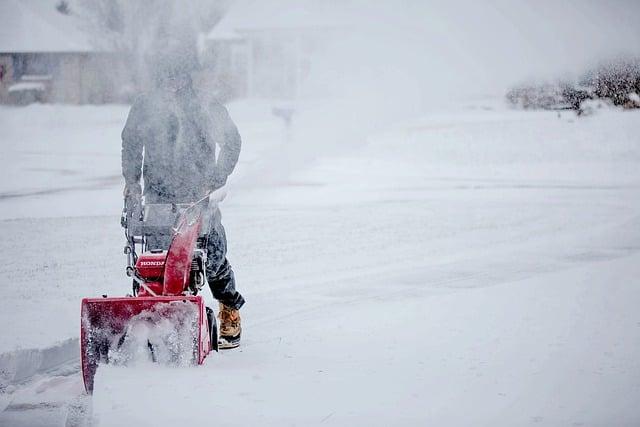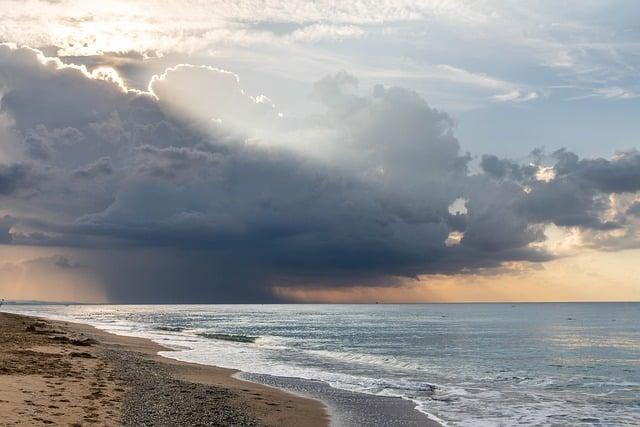- Introduction
- Extreme Heat Waves
- Intense Storms and Hurricanes
- Heavy Rainfall and Floods
- Snowstorms and Blizzards
- Conclusion
- FAQs
Introduction
Extreme weather events have been on the rise globally, causing significant disruptions and damages to both human lives and infrastructure. In this week's extreme weather report, we will delve into various phenomena ranging from extreme heat waves to intense storms and hurricanes, heavy rainfall and floods, and snowstorms and blizzards that have been occurring across different regions.
Extreme Heat Waves
Extreme heat waves, characterized by prolonged periods of excessively hot weather, have become more frequent due to climate change. These events not only pose health risks such as heat strokes and dehydration but also impact agriculture and ecosystems. Cities are particularly vulnerable, experiencing urban heat island effects that exacerbate the intensity of heat waves.

(Image: Pixabay/@qimono)
Authorities are increasingly implementing heat wave action plans to minimize the impact on vulnerable populations such as the elderly and children. It is crucial for communities to adapt to rising temperatures by enhancing heat resilience strategies and promoting sustainable practices to mitigate the effects of extreme heat waves.
Intense Storms and Hurricanes
The frequency and intensity of storms and hurricanes are on the rise, with warmer ocean temperatures fueling these extreme weather events. Coastal areas are most vulnerable to storm surges, high winds, and heavy rainfall that often result in widespread damage and flooding.

(Image: Pixabay/@dexmac)
Emergency response teams and meteorological agencies play a critical role in monitoring and issuing warnings for impending storms and hurricanes, allowing communities to evacuate and prepare in advance. Climate adaptation measures are essential to building resilient infrastructure and reducing the impact of these extreme weather events.
Heavy Rainfall and Floods
Heavy rainfall events can trigger flash floods and river overflows, causing destruction to homes, roads, and crops. Urban areas with poor drainage systems are at risk of inundation during intense rainfall episodes, leading to traffic disruptions and waterlogging.

(Image: Pixabay/@mikewolf_)
Investments in flood control infrastructure, such as retention ponds and levees, are necessary to minimize the impact of floods. Public awareness campaigns on flood preparedness and evacuation procedures are also crucial in mitigating the risks associated with heavy rainfall and flooding.
Snowstorms and Blizzards
Snowstorms and blizzards bring about extreme cold temperatures and heavy snowfall, posing challenges for transportation and power supply. Winter storms can lead to road closures, flight cancellations, and power outages, disrupting daily life and economic activities.

(Image: Pixabay/@JillWellington)
Before the onset of winter, municipalities often stockpile salt and deploy snow plows to clear roads and pathways. Homeowners are advised to prepare emergency kits in case of power loss or being snowed in during severe snowstorms. Climate-resilient designs for buildings and infrastructure can enhance their ability to withstand harsh winter conditions.
Conclusion
As extreme weather events become more frequent and severe, it is imperative for individuals, communities, and governments to adapt and build resilience against these challenges. Sustainable practices, climate adaptation measures, and early warning systems are essential components in mitigating the impacts of extreme heat waves, storms, floods, and snowstorms.
FAQs
How can we prepare for extreme weather events?
Preparing an emergency kit, staying informed through weather alerts, and having an evacuation plan in place are key steps in preparing for extreme weather events.
What role does climate change play in extreme weather?
Climate change contributes to the increased frequency and intensity of extreme weather events by altering temperature patterns, ocean currents, and atmospheric conditions.

